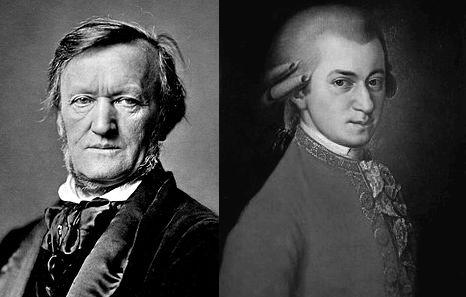I had a curtailed season this year, on account of illness: last night and tonight should have been my final concerts of the year. No one needed my bronchial insights, I am sure.
As ever, calculation offers a blunt instrument, showing a little more than what has interested me—I cannot go to a performance if it does not take place—but how much more is open to debate; for by the same token, I am unlikely to go out of my way to attend performances of music that does not interest me. Likewise, as in previous years, I have counted one appearance in a programme only, so a Mahler symphony counts for the same as a Schubert song. Anything else becomes too complicated. Operas are both staged and in concert, and include anything treated as an opera in that performance, e.g. Handel’s Theodora and Schoenberg’s Pierrot lunaire at the Royal Opera House. The apparent oddity of Kurt Weill having one concert and one opera, yet one overall, is owed to The Seven Deadly Sins having been part of an all-Weill programme.
I added a couple of events I recalled having attended but not reviewed (an all-Mozart concert and Opera North’s concert Parsifal). Lovely to see Xenakis at three concerts, even if they were all on the same day, forming part of a Southbank Centre centenary tribute. It would be lovelier still to see him on three next year, but somehow I doubt it. Wagner tends to do well in years when I visit Bayreuth; had I actually attended the six performances there I had intended, rather than having to cancel two, he would have emerged first overall. As it was, Mozart just pipped him to the post.
Concerts
7 Mozart
6 Beethoven, Brahms, Schumann
5 Liszt
4 Messiaen, Strauss, Wagner
3 Bartók, Busoni, Janáček, Mahler, Schubert, Xenakis
2 Chopin, Debussy, Dvořák, Elgar, Pavel Haas, Haydn, Ravel, Scarlatti, Schoenberg, Stravinsky, Vaughan Williams
1 John Adams, Julian Anderson, CPE Bach, JS Bach, Sally Beamish, Berio, Birtwistle, Arthur Bliss, Silvie Bodorova, Lili Boulanger, Boulez, Britten, Byrd, Francisco Coll, Louis Couperin, Tansy Davies, František Domažlický, Hanns Eisler, Cheryl Frances-Hoad, Fauré, Morton Feldman, Franck, Goehr, Dieter Gogg, Helen Grime, Reynaldo Hahn, Handel, WH Harris, Henry VIII, Fred Hersch, Hindemith, John Ireland, Ives, Joel Järventausta, Zoltán Jeney, Gideon Klein, Hans Krása, Oliver Leith, Scott McLaughlin, Mendelssohn, Tristan Murail, Parry, Poulenc, Juta Pranulytė, Rameau, Rimsky-Korsakov, Nikolai Roslavets, Hans Rott, Erwin Schulhoff, Scriabin, Jack Sheen, Valentin Silvestrov, Antonio Soler, Turnage, Viktor Ullmann, Galina Ustvolskaya, Varèse, Aleksandr Vustin, George Walker, Jennifer Walshe, Walton, Webern, Weill, Judith Weir, Wolf
Operas
7 Wagner
5 Mozart, Puccini
3 Britten, Janáček
2 Monteverdi, Purcell, Strauss, Stravinsky
1 Bartók, Berg, Bizet, Blow, Laura Bowler, Tom Coult, Delius, Clemens von Franckenstein, Handel, Kurtág, Rimsky-Korsakov, Saint-Saëns, Schoenberg, Ethel Smyth, Tchaikovsky, Viktor Ullmann, Freya Waley-Cohen, Weill
Overall
12 Mozart
11 Wagner
6 Beethoven, Brahms, Janáček, Schumann, Strauss
5 Liszt, Puccini
4 Bartók, Britten, Messiaen, Stravinsky
3 Busoni, Mahler, Schoenberg, Schubert, Xenakis
2 Chopin, Debussy, Dvořák, Elgar, Pavel Haas, Handel, Haydn, Monteverdi, Purcell, Ravel, Rimsky-Korsakov, Scarlatti, Vaughan Williams
1 John Adams, Julian Anderson, CPE Bach, JS Bach, Sally Beamish, Berg, Berio, Birtwistle, Bizet, Arthur Bliss, Blow, Silvie Bodorova, Lili Boulanger, Boulez, Laura Bowler, Byrd, Francisco Coll, Tom Coult, Louis Couperin, Tansy Davies, Delius, František Domažlický, Hanns Eisler, Cheryl Frances-Hoad, Clemens von Franckenstein, Fauré, Morton Feldman, Franck, Goehr, Dieter Gogg, Helen Grime, Reynaldo Hahn, WH Harris, Henry VIII, Fred Hersch, Hindemith, John Ireland, Ives, Joel Järventausta, Zoltán Jeney, Gideon Klein, Hans Krása, Kurtág, Oliver Leith, Scott McLaughlin, Mendelssohn, Tristan Murail, Parry, Poulenc, Juta Pranulytė, Rameau, Nikolai Roslavets, Hans Rott, Saint-Saëns, Erwin Schulhoff, Scriabin, Jack Sheen, Valentin Silvestrov, Ethel Smyth, Antonio Soler, Tchaikovsky, Turnage, Galina Ustvolskaya, Varèse, Aleksandr Vustin, Freya Waley-Cohen, George Walker, Jennifer Walshe, Walton, Webern, Weill, Judith Weir, Wolf


%20Nirah%20Sanghani%20(23).jpg)
%20Nirah%20Sanghani%20(14).jpg)
